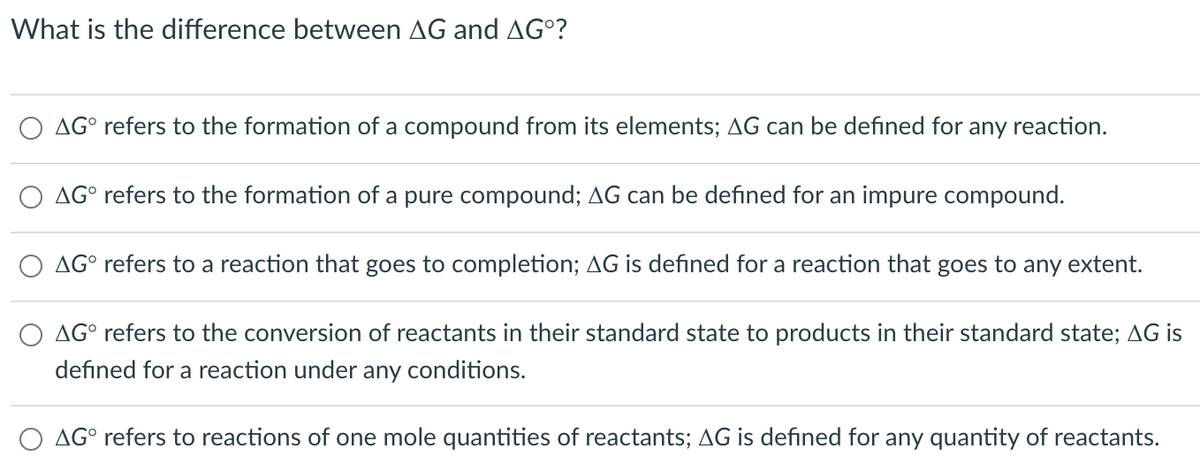What is the difference between AG and AG°? AG° refers to the formation of a compound from its elements; AG can be defined for any reaction. AG° refers to the formation of a pure compound; AG can be defined for an impure compound. AG° refers to a reaction that goes to completion; AG is defined for a reaction that goes to any extent. AG° refers to the conversion of reactants in their standard state to products in their standard state; AG is defined for a reaction under any conditions. AG° refers to reactions of one mole quantities of reactants; AG is defined for any quantity of reactants.
Thermochemistry
Thermochemistry can be considered as a branch of thermodynamics that deals with the connections between warmth, work, and various types of energy, formed because of different synthetic and actual cycles. Thermochemistry describes the energy changes that occur as a result of reactions or chemical changes in a substance.
Exergonic Reaction
The term exergonic is derived from the Greek word in which ‘ergon’ means work and exergonic means ‘work outside’. Exergonic reactions releases work energy. Exergonic reactions are different from exothermic reactions, the one that releases only heat energy during the course of the reaction. So, exothermic reaction is one type of exergonic reaction. Exergonic reaction releases work energy in different forms like heat, light or sound. For example, a glow stick releases light making that an exergonic reaction and not an exothermic reaction since no heat is released. Even endothermic reactions at very high temperature are exergonic.

Trending now
This is a popular solution!
Step by step
Solved in 2 steps with 1 images









